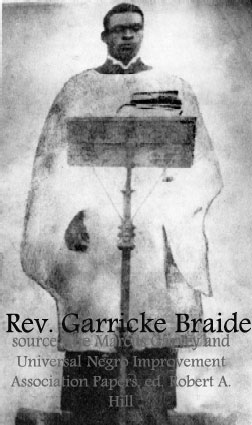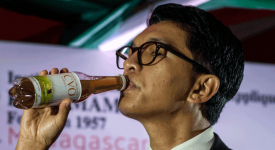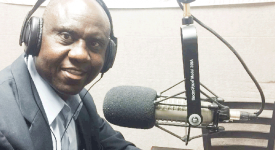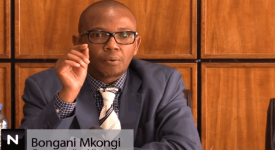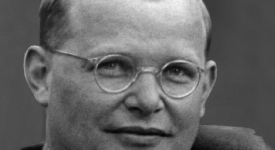The search for the meaning of pentecostalism as socio-political rebellion of materializing spiritual manifestations should look no further when it locates the man Garricke Sokari Braide, an Ijaw man in modern day Rivers State State of Nigeria. Braide was born in Obonoma a Kalabiri town around 1882.
For the histories of religion in Nigeria, or militancy in the Niger Delta, or, even religious studies generically, to forget to name Braide for what he was/is, who he was/is, and what he represented, and continues to represent in their narratives of Nigeria’s fraught history, may be worked out as perhaps more than meets the eyes.
Pentecostalism proper in Nigeria began with this Garricke Braide, the christian preacher who, with his handle on bible interpretations and teachings, and consequently his formidable social drive, gave colonizing British powers a run for their money in the Niger Delta.
Here is a narrative of Braide from another blog, maxieburch.net:
What America experienced in the early nineteenth century, West Africa experienced in the late nineteenth century, early twentieth centuries. Just as the religious landscape of America was carved out by men and women empowered by a democratic spirit and a populist gospel that called for all people to read and interpret the Bible for themselves, so the religious landscape of West Africa was shaped by powerful charismatic figures who harnessed the egalitarian power present in spiritual experience to empower poor and marginalized Africans. These charismatic leaders laid the foundation for African Independent Churches.
The nation state apparatus of Sub-Saharan Africa was created by Europeans in the late nineteenth century during a period known as the “scramble for Africa”. At the Berlin Conference of 1884 the Europeans decided to carve up Africa among themselves in order to gain access to the continent’s rich mineral and human resources and to bring civilization/Christianity to this dark and pagan continent.
The problem was that no one bothered to consult the Africans about this plan to civilize them. To quote Lord Salisbury, Britain’s Prime Minister, “We have been giving away mountains and rivers and lakes to each other, only hindered by the small impediment that we never knew exactly where we were or who lived there.”
By the early twentieth century there was growing unrest as Africans began to push back against European colonization. In an attempt to find a voice in a colonial world that systematically disenfranchised them, Africans discovered that Christianity provided them with a powerful means of personal expression. Much like it did for slaves in America, the biblical story provided Africans with a powerful tool for a addressing the many social and political injustices they suffered under colonial rule. In the biblical story God used the mouths of humble but powerful prophets to pronounce his judgments against social and political oppression and injustice. In West Africa in the early twentieth century two of these self proclaimed prophets were Garrick Sokari Braide and William Wade Harris.
Braide was from the Niger Delta. Known for his gifts of prayer, prophecy and healing, large crowds gathered whenever he preached. He railed against the use of charms and other former pagan symbols and demanded a complete observance of Sunday as a day of rest and prayer. It was said that he once called up a massive storm to punish those who defied Sabbath observance, but Braide focused his significant popularity and preaching on the eradication of alcoholism. Three million gallons of gin and rum were consumed each year in the towns and villages of the Niger Delta. His campaign was so effective it threatened the excise revenues being generated for the colonial powers making him a political problem. Some of his many followers joined the Catholic Church but a large number joined together to create Christ Army Church. One of the local newspapers declared that Braide was anointed by “the God of the Negro” to offer Africans an alternative to Western Christianity.
Learn more about Garrick Sokari Braide here.
…updating
Please submit your writing piece(s) here.
sources:
- maxieburch(dot)net
- The Marcus Garvey and Universal Negro Improvement Association Papers, ed. Robert A. Hill

